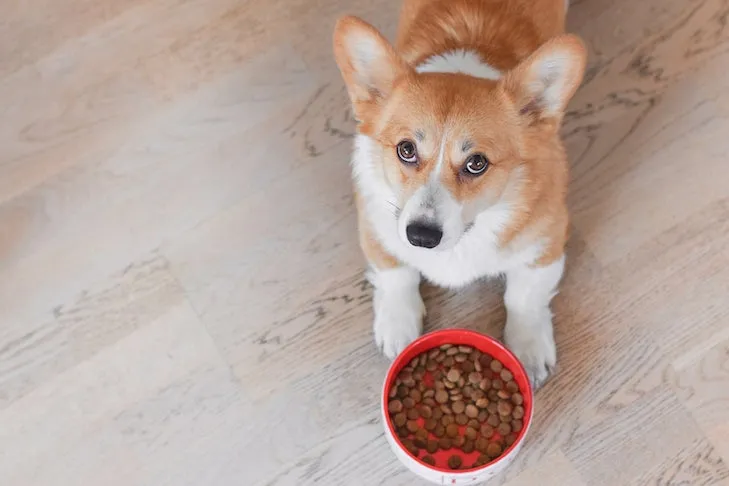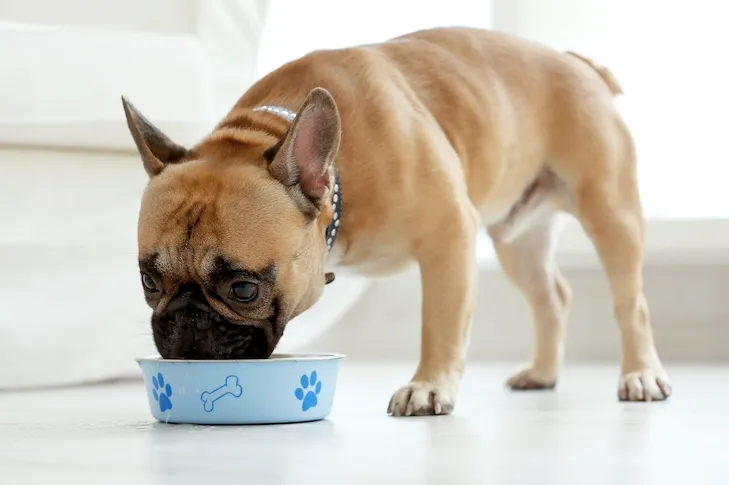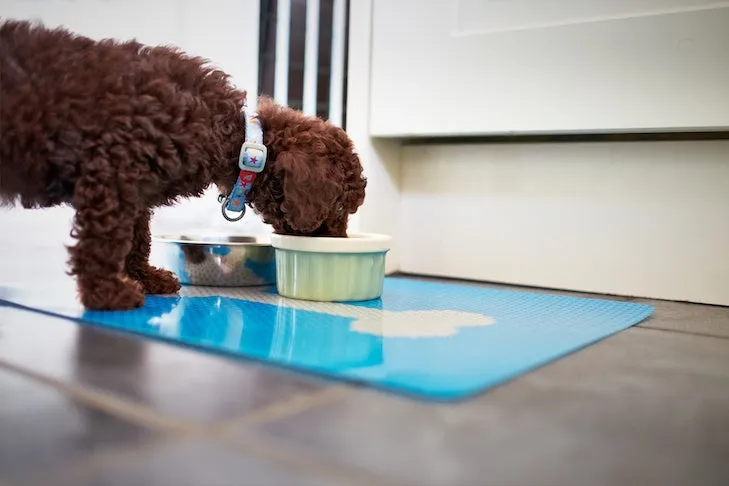Golden Retrievers are beloved for their friendly temperament, intelligence, and stunning golden coats, making them one of the most popular dog breeds worldwide. However, their specific breed characteristics and predispositions mean that choosing the right nutrition is paramount for their health and longevity. With an overwhelming array of dog food options available, all claiming to be the best, it can be challenging for dedicated Golden Retriever owners to make an informed decision. This comprehensive guide, aligned with the standards and insights often highlighted by organizations like the American Kennel Club (AKC), aims to simplify the process, helping you select the Best Dog Food For Golden Retrievers Akc owners can confidently choose.
Understanding Golden Retriever Nutritional Needs
Golden Retrievers, known for their active lifestyles and robust builds, have distinct nutritional requirements that differ from other breeds. As a large, active breed, their diet must support high energy levels, maintain ideal body weight, and fortify their joint and bone health.
Their general dietary needs include a balanced mix of proteins, fats, carbohydrates, vitamins, and minerals. However, Golden Retrievers are predisposed to certain health conditions that their diet can significantly influence. These include hip and elbow dysplasia, certain types of cancer, cardiac issues like subvalvular aortic stenosis, and various allergies. Therefore, a diet rich in specific nutrients can help mitigate these risks. For instance, incorporating sufficient levels of omega-3 fatty acids (EPA and DHA) is crucial for maintaining their lustrous coats, supporting cognitive function, and reducing inflammation, which is beneficial for joint health. Glucosamine and chondroitin are also common supplements found in large breed formulas that aid in joint support. Additionally, managing their weight is vital, as Golden Retrievers are prone to obesity, which exacerbates joint problems.
Consulting with your veterinarian is crucial to tailor a diet that addresses your Golden Retriever’s unique health profile and activity level. If you are already managing hip dysplasia in dogs, a specialized diet focused on joint support and weight control will be even more critical.
What Makes a Quality Dog Food for Golden Retrievers?
While many commercial dog foods claim to be “good,” understanding what constitutes high-quality nutrition for your Golden Retriever goes beyond marketing slogans. The best dog foods contain high-quality ingredients that are appropriate for your dog’s digestive system and life stage.
A superior dog food for Golden Retrievers should prioritize whole, identifiable meat sources as the primary ingredient. Look for chicken, beef, lamb, turkey, or fish listed first on the ingredient panel. These provide essential amino acids for muscle maintenance and overall health. Beyond meat, a balanced diet for domestic dogs also incorporates digestible grains (unless your dog has a confirmed sensitivity), fruits, and vegetables. These non-meat components are not mere fillers; they supply valuable vitamins, minerals, antioxidants, and fiber for digestive health.
It’s equally important to avoid foods laden with artificial colors, flavors, preservatives, and excessive fillers like corn, wheat, or soy, which offer little nutritional value and can sometimes trigger allergies or sensitivities in Golden Retrievers. The Association of American Feed Control Officials (AAFCO) sets guidelines that ensure a product is “complete and balanced,” meaning it contains the minimum amount of all necessary nutrients. Always look for this statement on the label to ensure basic nutritional adequacy, a standard that aligns with responsible pet care advocated by organizations like the AKC.
Decoding Dog Food Labels for Your Golden Retriever
Understanding a dog food label is essential to deciphering its quality and suitability for your Golden Retriever. Labels are mandated by the Food and Drug Administration (FDA) to include key information, though individual states may have additional requirements. Knowing how to interpret them helps you make informed choices.
The product name offers immediate clues about the main ingredients. For instance, a product named “Chicken Dog Food” must contain at least 70% chicken. However, “Chicken Dinner,” “Chicken Entrée,” or “Chicken Platter” only requires 10% chicken. Phrases like “With Chicken” denote a mere 3% chicken, and “Chicken Flavor” implies less than 3%, just enough for taste. Always pay close attention to these distinctions, especially when seeking a protein-rich diet for your Golden.
The ingredient list provides a detailed breakdown but can be misleading. Ingredients are listed by weight, with higher moisture content ingredients appearing earlier. This means whole meats (which contain a high percentage of water) might seem prominent but constitute less actual meat post-processing. In contrast, “meat meal” (e.g., “chicken meal”) sounds less appealing to humans but is a concentrated source of protein as much of the water has been removed. Be wary of “ingredient splitting,” where different forms of the same ingredient (e.g., “ground corn,” “flaked corn”) are listed separately to make them appear lower on the list, masking their true proportion.
A critical statement to look for is: “(Name of product) is formulated to meet the nutritional levels established by the AAFCO Dog Food Nutrient Profiles.” This ensures the food is “complete and balanced,” providing all essential nutrients. The “guaranteed analysis” lists minimum crude protein and fat, and maximum water and crude fiber. While useful, it doesn’t give exact amounts, leaving room for variation. For more detailed information, reputable manufacturers often provide average nutrient profiles upon request. Don’t hesitate to contact dog food companies directly; a transparent company committed to your dog’s well-being should gladly answer your questions. The World Small Animal Veterinary Association (WSAVA) provides a helpful sheet of questions to ask company representatives to assess their commitment to nutritional research and quality control.
 Corgi patiently waiting by a bowl of dry kibble, illustrating balanced dog nutrition.
Corgi patiently waiting by a bowl of dry kibble, illustrating balanced dog nutrition.
Life Stage Nutrition for Golden Retrievers
A Golden Retriever’s nutritional needs evolve significantly throughout its life, making it important to choose formulas tailored to each stage.
Golden Retriever Puppies
Golden Retriever puppies experience rapid growth and require a specific nutrient balance to support their developing bones and joints. A “large breed puppy food” is essential, as these formulas are carefully calibrated with lower calcium and phosphorus levels than standard puppy foods. This helps to prevent excessively fast growth, which can contribute to orthopedic issues like hip and elbow dysplasia, common in the breed. Overfeeding puppies, especially large breeds, can also lead to bone and joint problems. Always consult your veterinarian for precise feeding guidelines to ensure healthy, controlled growth.
Adult Golden Retrievers
Adult Golden Retrievers generally thrive on a maintenance diet that supports their energy levels and overall health. Their dietary needs will vary depending on their activity level – a highly active Golden participating in dog sports will need more calories and protein than a less active companion dog. Monitoring their body condition score is key to preventing obesity, a prevalent issue in the breed.
Senior Golden Retrievers
As Golden Retrievers enter their senior years (typically around 7+), their metabolism slows, and they may become less active. This often necessitates a diet with fewer calories to prevent weight gain, while still providing ample protein to maintain muscle mass. Joint support ingredients like glucosamine, chondroitin, and omega-3 fatty acids become even more critical. Some senior Goldens may also experience dental issues or a decreased sense of smell, making wet food or warmed dry kibble more palatable. Just as it’s important to consider ideal canine companions for seniors to match lifestyle and needs, selecting the appropriate senior dog food for your aging Golden requires careful thought and veterinary consultation. Your vet can help identify the best senior dog food for Golden Retrievers AKC guidelines would approve, taking into account individual health changes.
 A French Bulldog enjoying a meal from its bowl at home, representing a happy, well-fed pet.
A French Bulldog enjoying a meal from its bowl at home, representing a happy, well-fed pet.
Addressing Special Dietary Needs of Golden Retrievers
Like humans, Golden Retrievers can develop allergies, sensitive stomachs, or require diets for specific health conditions.
- Allergies and Sensitivities: Golden Retrievers are sometimes prone to skin allergies and food sensitivities, which can manifest as itching, ear infections, or digestive upset. If a food allergy is suspected, your vet might recommend a limited ingredient diet (LID) or a novel protein diet to identify and eliminate the allergen. Common allergens include chicken, beef, dairy, wheat, and soy.
- Weight Management: Given their predisposition to obesity, some Golden Retrievers may benefit from specific weight management formulas. These foods are typically lower in calories but still provide essential nutrients to keep the dog feeling full.
- Grain-Inclusive vs. Grain-Free: The debate around grain-free dog food continues. While grain-free diets might be necessary for dogs with confirmed grain allergies, for most Golden Retrievers, grains are a valuable source of nutrients. The FDA has investigated a potential link between grain-free diets and dilated cardiomyopathy (DCM) in some breeds. Always discuss this with your veterinarian to determine if a grain-free diet is truly necessary or beneficial for your Golden Retriever.
Best Dry vs. Wet Dog Food for Golden Retrievers
Both dry kibble and canned wet food are perfectly viable options for Golden Retrievers, and the “best” choice often depends on your dog’s preference, health needs, and your budget.
Dry Dog Food is generally the most common and affordable. It’s convenient to store, doesn’t require refrigeration, and its crunchy texture can help reduce plaque and tartar buildup, promoting dental health. High-quality dry kibble, formulated for large breeds and specific life stages, provides all the necessary nutrients for your Golden.
Wet Dog Food is often more palatable due to its higher moisture content and richer aromas, making it an excellent option for picky eaters, senior dogs with dental issues, or those needing increased hydration. While typically more expensive and requiring refrigeration after opening, wet food can be a valuable part of a Golden Retriever’s diet. Many owners opt for a combination of both, mixing wet food with dry kibble to enhance meal appeal while retaining the benefits of dry food.
 A Miniature Poodle puppy actively eating its dinner from a silver bowl in a modern kitchen.
A Miniature Poodle puppy actively eating its dinner from a silver bowl in a modern kitchen.
How Much Should I Feed Your Golden Retriever?
Accurately determining how much to feed your Golden Retriever is crucial for preventing obesity, a significant health concern linked to many health problems in dogs. The feeding guidelines on dog food bags are a starting point, but they are general recommendations. Individual needs vary greatly based on factors like age, activity level, metabolism, spay/neuter status, and overall health.
Regular veterinary check-ups are essential to monitor your Golden’s weight and overall body condition. Your vet can help you understand your dog’s ideal weight range and caloric needs. Many Golden Retrievers are enthusiastic eaters, making portion control a key responsibility for owners. Instead of strictly adhering to bag guidelines, practice “feeding the dog that’s in front of you,” adjusting portions based on how your Golden Retriever looks and feels. A healthy Golden should have a visible waistline and ribs that are easily felt but not seen.
Choosing the Best Dog Food for Your Golden Retriever
Ultimately, the decision for the best dog food for Golden Retrievers AKC owners select rests with you and your veterinarian. As a Golden Retriever owner, you are uniquely positioned to observe your dog daily. If your Golden Retriever maintains a healthy weight, has consistent energy, boasts a shiny coat, produces firm and healthy stools, and shows a good appetite, their current food is likely meeting their needs.
Your veterinarian is an invaluable partner in this journey. They possess expert knowledge in pet nutrition, access to current research, and an understanding of your Golden Retriever’s specific health history. They can help you navigate the vast options, provide tailored recommendations, and offer guidance on any dietary adjustments needed throughout your Golden’s life. Always consult your vet to ensure you’re providing the most nutritious and appropriate diet for your beloved Golden Retriever.
 Three Beagle puppies enthusiastically eating dry kibble from separate bowls indoors.
Three Beagle puppies enthusiastically eating dry kibble from separate bowls indoors.
References
- The Merck Veterinary Manual. (n.d.). Nutritional Requirements and Related Diseases of Small Animals. Retrieved from http://www.merckvetmanual.com/mvm/management_and_nutrition/nutrition_small_animals/nutritional_requirements_and_related_diseases_of_small_animals.html
- The Merck Veterinary Manual. (n.d.). Dog and Cat Foods. Retrieved from http://www.merckvetmanual.com/mvm/management_and_nutrition/nutrition_small_animals/dog_and_cat_foods.html
- Association of American Feed Control Officials (AAFCO). (n.d.). Labeling Requirements. Retrieved from http://petfood.aafco.org/Labeling-Labeling-Requirements
- World Small Animal Veterinary Association (WSAVA). (n.d.). Recommendations on Selecting Pet Foods. Retrieved from http://www.wsava.org/sites/default/files/Recommendations%20on%20Selecting%20Pet%20Foods.pdf
- American Kennel Club (AKC). (n.d.). Dog Breeds. Retrieved from https://www.akc.org/dog-breeds/
